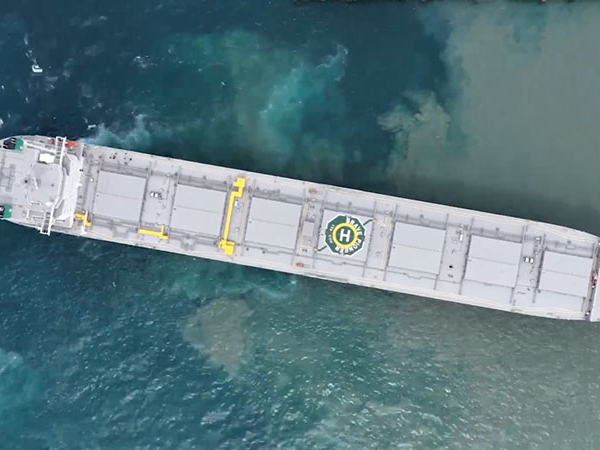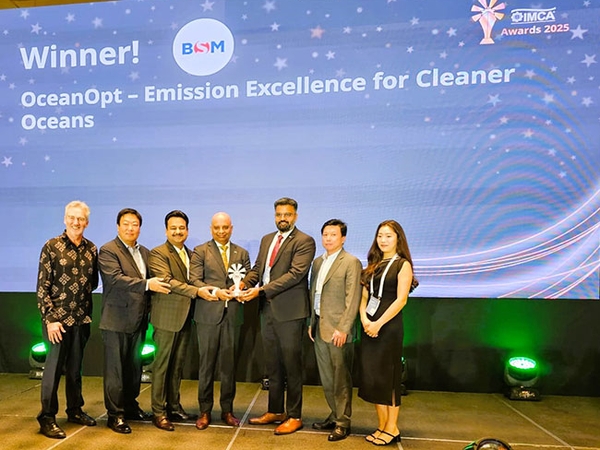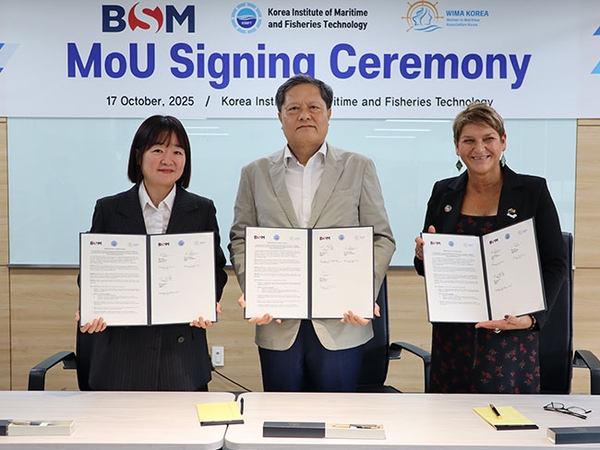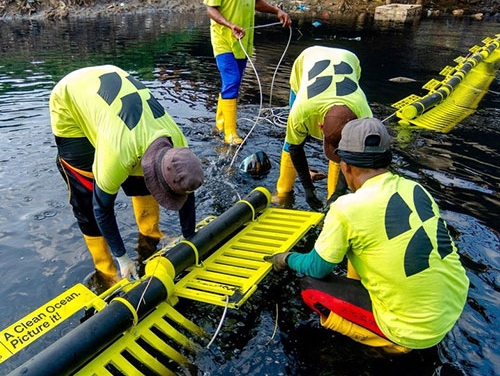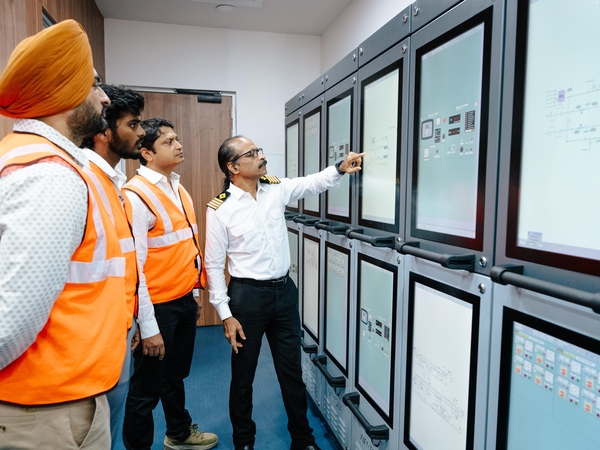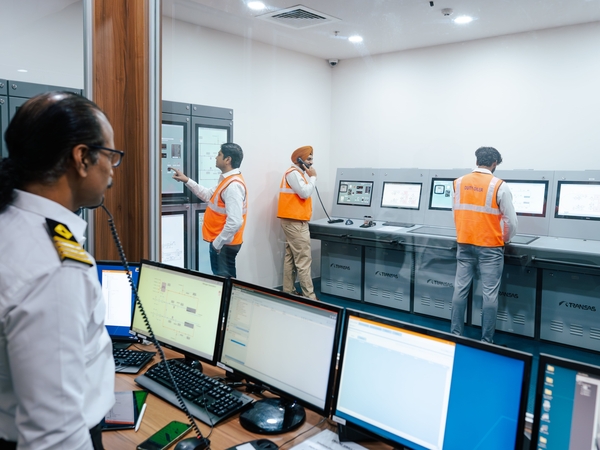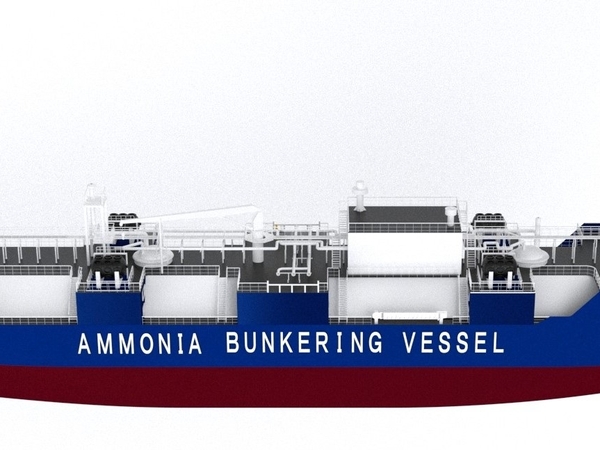
Shipmanagement tends to remain stable despite market fluctuations, sustainable growth is expected to continue this year, according to Theophanis Theophanous, Managing Director of Bernhard Schulte Shipmanagement (Hellas). Purpose-made funds are gradually assuming the functions of financing. About, the Greek flag, it’s still not as appealing as it could be.
The (slow but steady) improvement of the market has now become apparent. How are you handling this development? How are your plans changing?
In contrast to owning companies as well as other maritime stakeholders, industry fluctuations do not quite have the same impact on a third party shipmanager. Whether facing an upward market trend or a downward turn, ship management service provision remains fundamentally stable. Nevertheless, there is a notably more relaxed attitude than during the previous challenging years, with an openness to investments and new opportunities. The role that is imperative for a shipmanager then, is to be a strong support for owners throughout all market changes and to be flexible to meet each unique and specific range of requirements that are presented to us. At BSM we consider ourselves an important collaborative partner, supporting our Owners to ensure maximised returns on each of their assets. Drawing always on our background as shipowners, we know first-hand that when ships are operated in top class condition with excellent performance results and strict adherence to each OPEX budget, then Owners acquire the necessary return on investment to look to other opportunities that might be of interest. Likewise, we have seen that management services can be useful for asset players, who favour spending their time monitoring when to enter and leave the market instead of dealing with day to day time consuming vessel management. Based on our experience therefore, we will continue to provide the necessary stability and support for each Owner and instead focus on innovative developments in our work practices to improve where possible the services we provide.
Despite the improving market, financing remains problematic. Are funds, which are more affiliated to financing, a solution or should the banks be more decisively involved?
There is a noticed upsurge in the formation of funds, most likely stemming from difficulties faced in securing finance from more traditional lending routes, forcing companies to seek alternative options to continue operations and strategic fleet evolution. This is particularly the case for small to medium-sized shipowners, as banks generally concentrate on larger shipping clients to adhere to regulatory and risk management requirements. The problem with such a financing option though, is that it is not a long-term solution since the key objective of most funds and their depositors, is to maximise investment and then swiftly move on to an alternative more profitable opportunity.
Drawing on a robust history and experience of maritime financing, in line with strict market demands, no doubt Owners will make full use of the differing funding options now available to securely control their fleet. It is positive that there are more channels available to collect funds than in the past and these have also probably helped the market on its road to recovery following the deep crisis. Despite this though, quick funding options may prove challenging for Owners who are focused on longer term fleet evolution and thus banks will most likely always retain a key role in maritime finance. Other investment and sub-financing options will remain though and probably continue to evolve, providing owners keen on asset playing and shorter vessel ownership life cycles with easier access to the funds to make that happen. Either way improving the options available to acquire cash, in line with the long- and short-term company objectives of each owner, should re-energise the formerly stagnant maritime industry.
While Greek shipowners continue to invest, albeit at a slow pace, the Greek flag is not profiting. What do you think is needed to see an increase of ships in the national register?
Service providers must always be focused on providing end users with a flexible and financially rewarding collaboration, because these are very appealing customer values. Flag Administrations as service providers must consequently try hard, within the scope of their procedures, regulations and standards, to achieve client satisfaction. To increase the number of ships under the Greek flag there needs to be a concerted effort to curtail the difficulties in its adoption. Bureaucracy must be abolished, paperwork minimised and a focus on trying to offer the same flexibility as other administrations. One example could be the restriction of obligatory employment of Greek seafarers for a Greek flagged vessel, when actually for certain types of ships availability of such crew can be limited as well as costly. Such obstinacy can definitely have a negative impact when the choice of flag administration is being made. There is certainly a chance for business advancement in the case of the Greek Flag but to be able to become more prevalent, it will require the amendment of outdated restrictive practices, substituted instead with amenable methodology fitting for the modern Owner. Then there is no reason why it could not then become more competitive nationally and expand significantly.
Some believe that the latest developments in Syria may open up an important chapter for the shipping industry. Do you think this is a possibility?
There could perhaps be some small-scale opportunities and potential growth of maritime activity associated with Syria since the shipping industry is always quick to respond to shifts in supply and demand. None the less based on the prevalent unrest there, it will certainly present operational challenges such as the trade barriers faced with Iran. Owners therefore will have to be selective in their involvement, to ensure that a suitable financial return can be achieved but it is unlikely that a new chapter as such is going to be written in the foreseeable future.
How can a shipmanager preserve and enhance shipping’s image?
Shipping is always in the news and mostly not in a positive light, which is very unfortunate considering that consumers are left unaware even of basic information, such as the need for our industry to transport 90% of purchasable goods worldwide. This will not change but it is certainly the responsibility of all ship operators, whether ship owning companies or shipmanagers, to not only uphold but to enhance the image of our industry. Having safety and safe operations always in mind and at the forefront of each activity or policy/procedure that is drawn up, is one step towards minimising the risk of any incident but also any extended effect on lives at sea, the environment and a vessel or company’s resultant reputation. In addition to this there must be strict adherence to the guidance of International legislation, which is in place to protect all members of the maritime community.
BSM is an active participant of industry associations and takes part in congresses, panel discussions, conferences, meetings and events so that BSM can share the knowledge of our in- house experts in an effort to socially support the environment in which we work. This interaction provides the chance to keep informed about issues of current importance and updated about the opinions of our extended market colleagues, based on which we can ensure that BSM is always prepared in advance of any expected change as well as fuelling our innovative drive.
BSM uses a variety of initiatives to encourage our employees to look for improvement in our work place especially relating to sustainability, our services and advancement of our policies and procedures. Additionally, both at a Corporate level as well as a local Country level BSM employees are advocating a range of Corporate Social Responsibility activities. Collaboration throughout the industry of maritime employees with such deeds really helps to bring about a holistic awareness of the impact of our conduct. BSM therefore will always be an active participant with organisations that can directly affect the environment, safety at sea and the dynamic legal framework that guides our everyday work and assist in upholding the image of shipping in a positive light.
What are your company’s plans for 2019?
BSM Hellas awaits with optimism a continuation of our previous year’s sustainable growth, with strategically planned expansion throughout 2019 and for the upcoming three years ahead. We are pleased to be expecting an increase in all vessel sectors in line with our present fleet of bulk carriers, container ships, oil and chemical tankers plus LPG and LNG carriers as well as our locally located crew and ship management teams.
To ensure full application of BSM’s high standard tailor-made management services, specialised to meet the requirements of each owner and vessel type, there must be a perfect balance of in-house experience and capabilities to ensure that market trends can be met. Take for example the notable interest in the LNG market, with the expected influx and 20% increase in LNG carriers by 2021 this will definitely bring an array of challenges that must be faced early on. To be in a position to assist any Owners wishing to move into this field, then planning must realistically have already started, especially for how to source and train the necessary number of highly skilled seafarers and shore staff.
New technology is regarded by the BSM group as a fundamental resource, to support innovation of our work processes and achieve continuous improvement in the way we run the ships entrusted to us. MariApps Marine Solutions, part of the Schulte Group, is an enterprise digital solutions company offering state of the art software applications for the marine industry. Its flagship product PAL built with the latest Microsoft technology and based on direct feedback from functional market experts and us as ship owners and ship managers has revolutionised our daily operations onboard and ashore. Through the benefits of faster centralised data access and work processes, reduced possibility of error as well as better transparency ship to shore and concurrently with our clients, we have become ever more determined to push forward with generation of further technically advanced solutions. This in combination with our wealth of internal human resources, we believe, offers a strong driving force to evolve our business and keep BSM resilient and with a robust future ahead.
Interview by Shipping International Monthly Review, March 2019
